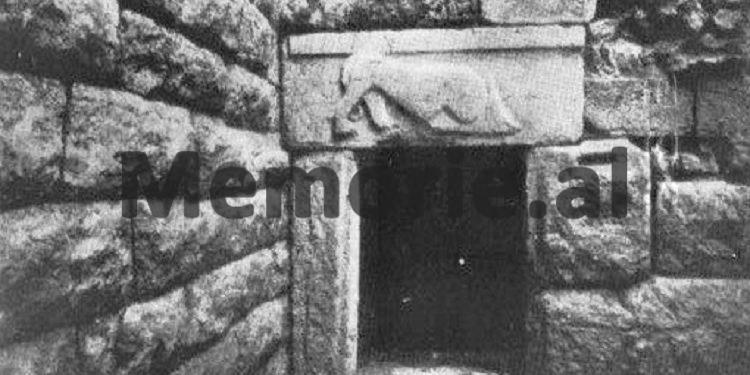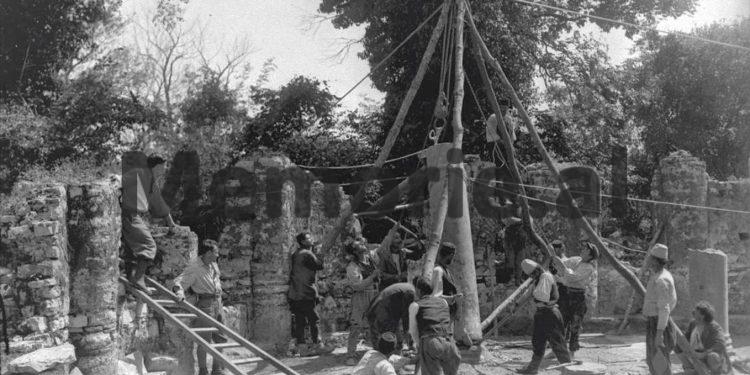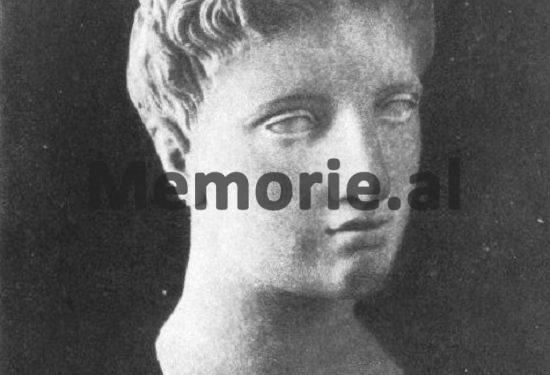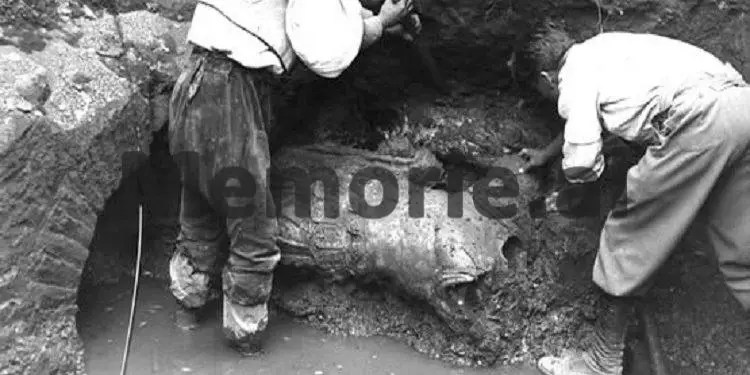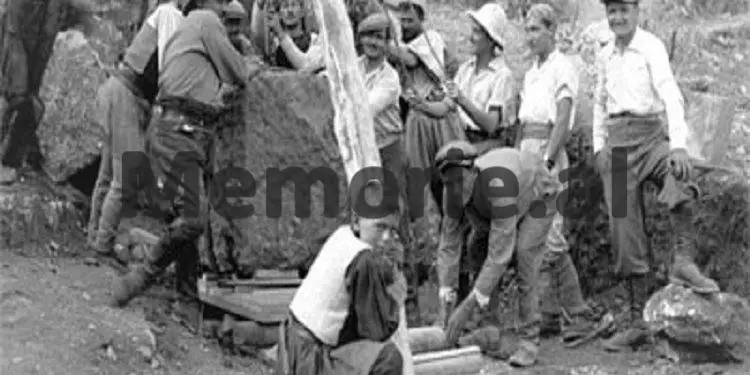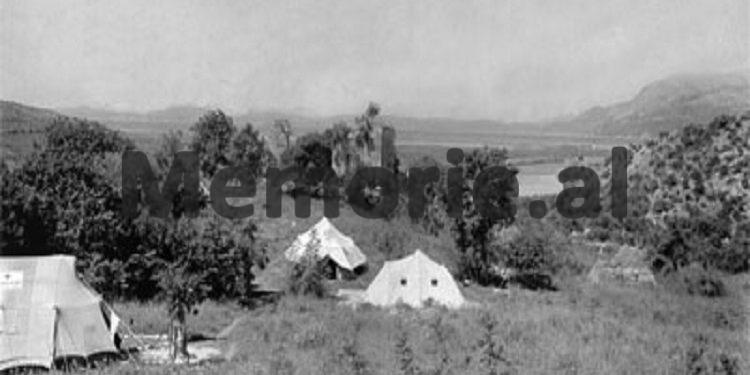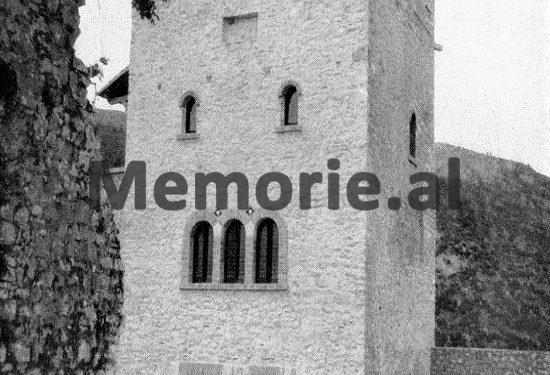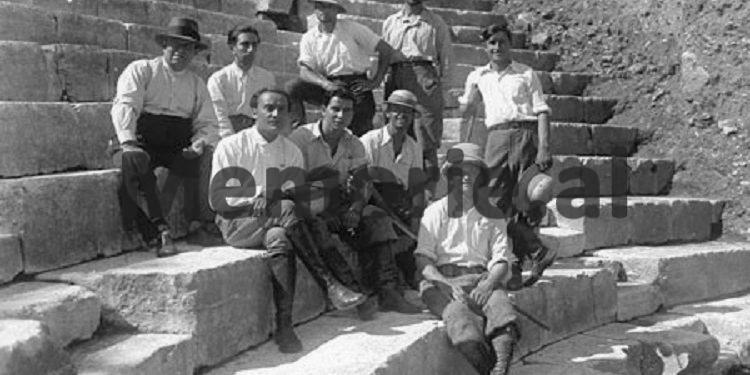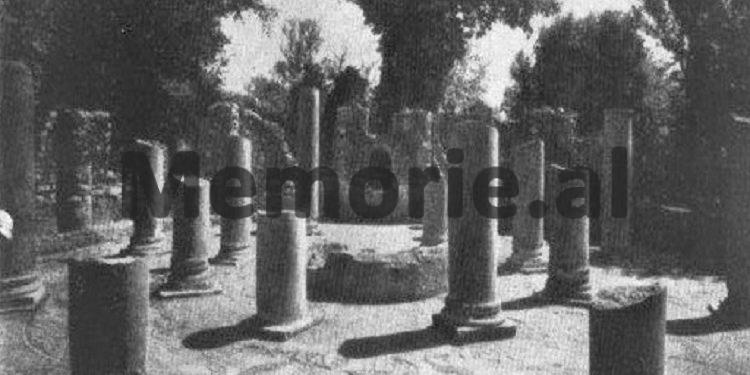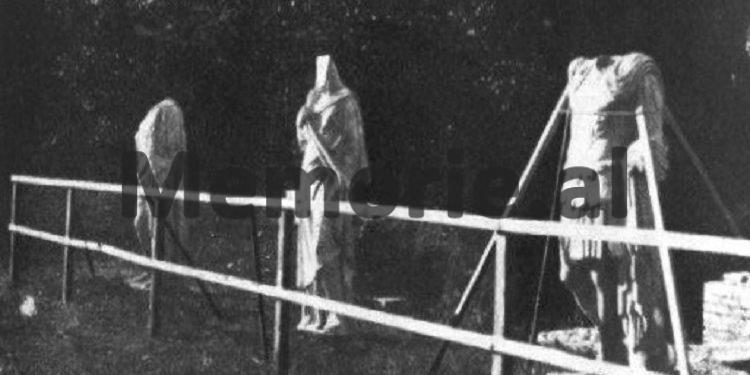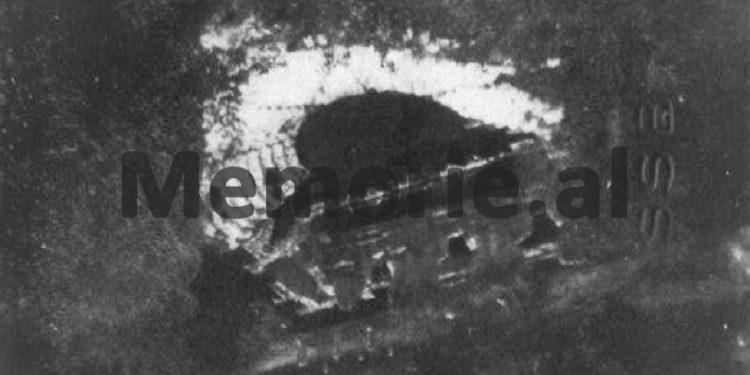By Sven Aurén
Translated by Adil N. Bicaku
Part twenty-nine
ORIENTI EUROPE
Land of Albania! Let me bend my eyes
On thee, thou rugged nurse of savage men.
Lord Byron.
In the book “Orient of Europe”, the author of the work is the Swede Sven Aurén. They are impressions of traveling from Albania from the ‘30s. His direct experiences without any retouching.
In a word, the translation of the book will bring to the Albanian reader, the original value of knowing that story that we have not known and we continue to know it, and now distorted by the interests of the moment.
Now a little about what these lines address to you: My name is Adil Bicaku. I have worked and lived for over 50 years in Sweden, without detaching for a moment, the thought and feeling from our Albania.
I am now retired and living with my wife and children, here in Stockholm. Having been for a long time, from the evolution of the Albanian language, which naturally happened during these decades, I am aware of the difficulties, not small, that I will face, to give the Albanian reader, the experiences of the original.
Therefore, I would be very grateful if we could find a practical way of cooperation together, to translate this book with multifaceted values.
Morally, I would feel very relieved, paying off part of the debt that all of us Albanians owe to our Albania, especially in these times that continue to be so turbulent.
With much respect
Adil Biçaku
Continued from the previous issue
A clear morning when Corfu lies half hidden from the dumb and when the heat weighs on the city of Saranda, we head down to the port, where Delvino Beu, waits with a fishing boat. The captain is lying on the boat and learning the diesel engine, with a welding lamp. Delvino Beu, is sitting in the front of the boat and fluttering his hat. On the pier stand two gentlemen in uniform, who at a closer look appeared to be a gendarme and a police officer?
According to the code of etiquette of the country, it is in fact this decision that the visiting foreigners, if possible, be greeted by a number of people. In addition to Delvino Beut, today’s greeting group, consists of this elegant police officer. But an officer must have someone to command, so in our society, a well-armed gendarme is involved. He is cheerful in his task, this gendarme, has inserted a flower into the muzzle of the rifle.
Now the ropes of the boat are untied and our boat floats out to that quiet bay. A light breeze gives us a freshness, for which we wished. We headed south of the ship.
Delvino Beu, captures the adoring display of my gaze, where I sit and follow the magnificent silhouette of the coastal mountain.
There are not many prominent people who have honored the southern coast of Albania with a visit, he says. But still, there are some prominent tourists from time immemorial, who have given their worship to these mountains a literary form.
-For example?
-Lord Byron. “Childe Harold´s Pilgrimage” makes a wonderful description of this region. We also have another traveler, an antique tourist, if I may say so, he laughs. Tourist Aeneas!
Aeneidens hero, he calls Aeneas as a tourist! Think, if my old Latin lecturer would hear this expression! He would back down as if taking a slap.
But otherwise Delvino Beu, he is right. He has promised us to make an excursion in the time before Christ, to the archeological sensation of Albania, the fabulous city of Butrint and Virgil, is the first writer who mentions the existence of Butrint. He is in the third book of Aeneidens, which Virgil tells of Butrint or Buthrotum. Troy has fallen and Aeneas has taken the long unplanned road. In Butrint, as with power and wealth he is on his way to becoming a second Troy, he regains Hector’s wife, Andromache:
Now I call for travel and every one, to take a seat in the sailing boat.
There is another classic writer who talks about the city of Butrint: Julius Caesar in “De bello civil”. And the great Racine of France describes the place where his tragedy “Andromaque” is played, as “Buthrote, ville d´Epire”. Butrint is truly a city with traditions and history.
So you have to give the Albanians the right, when they describe the discovery of Butrint, as an archeological sensation. Otherwise, this expression is used only in Albania: in the context of the international archaeological literature, the discovery of Buthromtum by Aeneas was characterized by the same words. That young Italian archaeologist, who has the honor to take over and that he has found the city and who also leads the excavations, Dr. Luigji M. Ugolini, with this work he has even become a famous scientist.
He is only in the mid-thirties, but has worked in Albania, since 1924 and, among other things, has discovered an acropolis, very well in the place where the Phoenix of antiquity once lay. In 1928, he managed to determine where Butrint was and after that, he took up this new task, which has given an excellent result. But outside the ranks of scientists, Luigi Ugolini is still an unknown greatness.
International travel agencies have not yet managed to understand what an incomparable tourist attraction, which is found so comfortable and close to visitors to Greece and the Adriatic. But Ugolini himself does not despair because of this. He has won those laurel wreaths, which he has aspired to and it looks like he will win even more. Albania is a rich land, a virgin land in the archaeological sense. Ugolini is the only connoisseur and specialist.
-Signor Ugolini, has gone to that degree in the excavation work, as he has arranged an apartment, for himself in a ruin of an old castle and resides there all year round. But now he is at an archeological congress in Rome, so you unfortunately will not have the opportunity to meet him. Otherwise it is a very pleasant meeting, Delvino Beu tells us.
Right there in that white house of the Greek coast guards, it means that we are heading to the floating waters of another country, the captain changes course, to the east. In front of us lies the bay of Butrint, narrow as a river. The longer we enter the bay, the swampier the shores become.
At that big fishing station, the boat has to slow down for a moment. The bay is particularly rich in fish and the population through an effective system of basins, has managed to manage a large-scale fishery. The construction of the dams blocks the water, from shore to shore and we pass through them, thanks to a lighthouse with iron wires. The captain unloads the case and dips a net with a handle into one of the ponds. After a minute a large carp lies on the deck of the boat and shines like silver, in the sunlight. It’s our dinner. It will be baked in the ruins of Butrint.
Ten minutes later we reached the bottom of the bay, but we do not see any ruin. The boat is tied to small beautifully constructed stone scaffolding, on which several small train tracks emerge. But they do not think of any train, but of slabs of a special construction, on which signor Ugolini transports the discovered works of art, to the waiting steamers.
We leave the pier and make our way through a dense jungle. And so we are in that place, where if we are to believe Virgil, Andromache’s story of the distant traveler Aeneas, how she managed to escape the catastrophe at Troy and find protection in the city of Butrint.
***
The jungle gives you an unexpected tropical impression. Thin shrubs twisted among hundreds of year-old trees, tall flirty plants with flowers in poisonous colors. The ground is like a sieve of fallen trees, half-grown on top of each other, tree trunks in which, the golden-colored shrubs, move here and there like fast curls. The branches above our heads are so dense that the blue of the sky rarely shines. In a strange half-light, we march in one like a goose march, along a narrow path. The gendarme walks forward and leaves the bush, with a thick stick, because there are plenty of snakes, strong and dangerous specimens, that grow up to two meters long. Delvino Beu, helps by raising thorns and turning the branches sideways.
Our walk in the jungle forest goes forward but slowly. The tropical impression is flattened through the play of vegetation color transformations. The air is lukewarm and humid. But what does not seem tropical is silence. I, in fact, have not had the opportunity to experience a real tropical jungle, but I associate it with one of the inexplicable, terrifying voices, crackling of branches, sudden cries, chirping of birds, etc., etc. This is a dumb jungle. The silence is almost awful. The only thing that can be heard is the crackling of our steps in the gravel of the path.
I eagerly search for historical memories and from once it seems to me to distinguish low slopes, where the soft lines of moss, hints at the existence of an old wall or a house. For a moment we all see how a marble pillar, twinkled in the depths of the jungle. But that’s just the prelude to what I’m going to get, says Delvino Beu.
And so it shines before us and before we open our mouths, we find ourselves on an open lawn, illuminated by the sun, that at the first glance of the eyes, it looks like it is a snowy field. When my eyes get used to this whiteness, all so intense, but I realize, that the snow has remained there, a thousand and a half years, at least: it is a magnificent amphitheater with white marble. It lies on a strong and well-maintained cliff, though the foundation is filled with water.
The seating areas look amazing against the brown greenery and the pillars of the stage and the paths give a wonderful view of how the theater was at the time it was used. That large piece of marble comes from the four hundred years, Delvino Bey Points out, but the scene was rebuilt on the Greek foundation, during the last period of the Roman republic. During the excavations, a lot of decorative objects were found, which for a while, served to decorate the theater. Theater tickets were also found.
Here from the amphitheater lawn, I come up with a pretty good idea for Butrint. At the top of the high slopes of the theater lies the Venetian castle, which this Italian archaeologist has restored and equipped for housing. Up there towards the castle which has a dominant position, with an extraordinary view over land and sea, climbed the surrounding walls and other protective works.
In the valley around this hill, stretched the Butrint of antiquity, as one of the centers of Epirus for trade and culture, until out of nowhere, the sea won over the amphitheater, the marble temple and the dwelling houses. Like a tale of Atlantis, Butrint would lie at the bottom of the sea. Long after a few hundred years the water receded again and the jungle forest was found calm, to open its quilt, over the ruins of the city. These are fantastic things that are hidden six or seven meters below this ground.
Ugolin’s strange discoveries are only a fraction of what is left to bring forward in daylight, but due to difficult working conditions, the excavations are progressing very slowly. Dense vegetation, it is possible to overcome it, swampy soil necessarily requires costly drying work. In addition, they must fight malaria. Ugolini himself has been affected in many cases by her attacks, but apparently did not cause any major obstacles in the zeal of his discoveries. He intends to dedicate his life to Butrint, who hopes to discover him in twenty, thirty years. Then Albania will be the possessor of one of the attractions of the world.
But already these excavations are quite an attraction. From the white marble mass of the theater, we dive back into the jungle and exit again, to another lawn, which contains a Byzantine baptismal church, where the marble pillars and sculptures stand on a floor of mosaics with the most beautiful paints. Nearby they have also found a curative asylum, almost entirely well-preserved, from five hundred years b.c., in which the sick, who have regained their health, have placed a large number of tablets, with clear inscriptions and legible. Memorie.al




